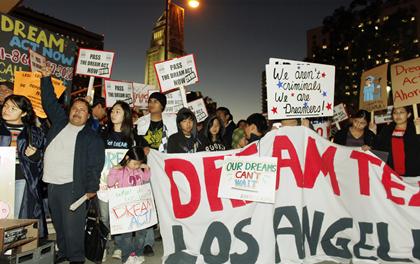PHOTO: South Korean military’s K-9 self-propelled howitzers, the same kind as those mobilized in Monday’s live-fire exercise on Yeonpyeong Island, engage in a drill in this file photo. (Yonhap News)
—
Despite international fears of escalating tension on the Korean peninsula prior to the South’s live-fire military drills launched Monday on the same island shelled by the North just a month ago, World War III did not erupt.
Instead, North Korea, which had earlier promised “brutal consequences beyond imagination” if the South went ahead with its drills—the same kind that preceded the North’s artillery shelling of Yeonpyeong Nov. 23, which killed four—chose not to respond. The official Korean Central News Agency dismissed the South’s latest military exercise, which involved launching fighter jets and firing into disputed waters off the island, as “not worth reacting to” and noted that the South Korean shells landed farther south of the North’s shores than the earlier ones. South Korean defense officials said the shells were fired in the same direction as those in November.
The non-event Monday followed an emergency meeting Sunday of the United Nations Security Council members, who failed to come to an agreement on any measure to help defuse the tension.
Meanwhile, New Mexico Gov. Bill Richardson, a former U.S. ambassador to the United Nations, was in Pyongyang on an unofficial diplomatic mission and reported that the North Koreans had agreed to let U.N. atomic officials inspect its main nuclear complex in Yongbyon and also to sell its fresh fuel rods, which could be used to make nuclear weapons, to South Korea.
“We had positive results,” Richardson told Associated Press Television News. He also said he repeatedly pressed the North not to retaliate after the South’s drills. “The result is that South Korea was able to flex its muscles, and North Korea reacted in a statesmanlike manner,” he said. “I hope this will signal a new chapter and a round of dialogue to lessen tension on the Korean peninsula.”
For some level-headed perspective on the ongoing back-and-forth between the Koreas, revisit the Q-and-A charactermedia.com conducted with Korea expert David Kang, director of the Korean Studies Institute at the University of Southern California. Also, Georgetown professor Victor Cha, who formerly advised President George W. Bush on Korea policy, tried to dispel some myths about North Korea in this recent Washington Post piece.








